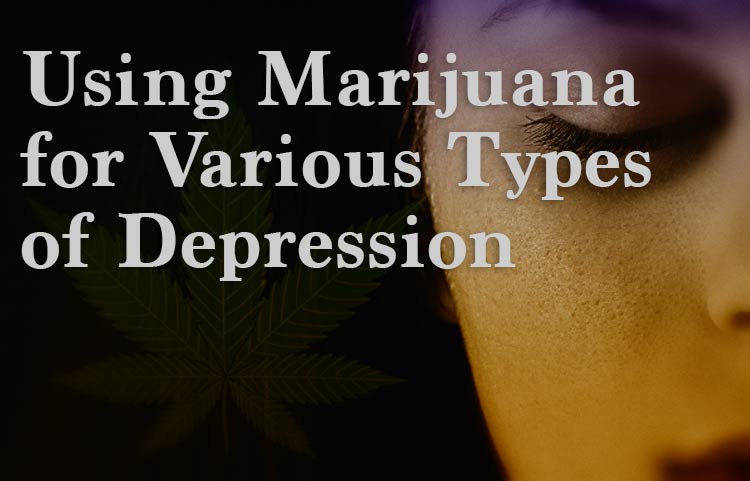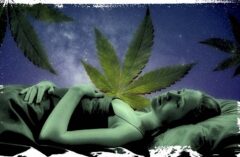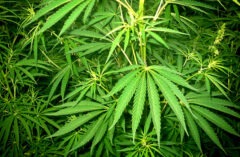Table of Contents
Last Updated on January 19, 2024 by Team Spinfuel
The federal government recognizes marijuana as a schedule I controlled substance limiting the amount of quality research for a mood disorder like depression.
But, scientists are looking into medical marijuana as a treatment for depression focusing on brain chemicals called endocannabinoids which are naturally produced compounds. Their chemical structure is comparable to cannabis and are involved in motor control, feelings, cognition, and behavior.
Studies were performed on animals and humans, scientists determined that chronic stress subdues the creation of endocannabinoids. By introducing cannabis, the regular levels and function may be restored by reducing the symptoms of depression.
Symptoms of Depression
When something does not go your way, you feel down, and that’s normal. But when you are overwhelmed with hopelessness and misery and it lasts long, interferes with your daily life you may have depression.
It’s time to seek professional help, your doctor will determine the symptoms of your depression and help manage these. Recognizing the symptoms is the key to overcoming them will make you feel better.
- A miserable attitude toward life, there’s nothing you can do to turn things around.
- Loss of interest in the joy and pleasure of hobbies, social activities, work, friendship, and sex.
- Weight loss or weight gain due to unusual eating habits.
- A change in the sleep cycle like waking up in the wee hours of the morning or longer sleep.
- Easily flares up, patience is low, anything and everyone drives you up the wall.
- The body feels heavy, sluggish, and physically depleted even menial tasks take more time to finish.
- You condemn yourself for slip-ups.
- You escape from harsh realities by engaging in substance misuse, obsessive gambling, careless driving, and extreme sports.
- Difficulty in concentrating, making the right decisions, and memory lapses.
- Baffling pain such as headaches, back pain, muscle, and stomach.
- Loss of interest in life, suicidal tendencies or thoughts of inflicting personal harm.
- Problem with digestion even with treatment.
- Finding difficulty in your home and relating with the family members.
Types of Depression
Knowing the type of depression that you have and receiving the proper medical treatment is a big step towards recovery. Acceptance is vital and talking to a doctor is essential for an accurate diagnosis and care you need.
Major Depression
Can be known as clinical or unipolar depression is depicted by a continuous feeling of gloom lack of interest connecting with the world. A sufferer bears this type of depression if you show five or more symptoms for at least two weeks.
- Do not indulge in activities.
- Guilt feeling of worthlessness.
- A pessimist with inability to grasp positive solutions.
- Feeling anxious or disturbed.
- Problem connecting with loved ones.
- Failure to focus.
- Gets easily tired and lazy.
- Increased or reduced weight.
Dysthymia
Also known as persistent depressive disorder people afflicted find it difficult to find joy even in happy moments. They seem to be gloomy, cynical, and a whiner because they are suffering from a lingering mental disorder. The symptoms of depression last for years and the intensity varies.
Manic Depression
Or bipolar disorder affects the brain that causes mood swings and changes in thinking, vitality, and kip. When in the depressive state the patient has suicidal tendencies that shifts to feelings of ecstasy and limitless energy. The fluctuation in mood can happen weekly or show up twice a year.
Seasonal Affective Disorder (SAD)
SAD is associated with the change of season. The symptoms are hopelessness, exhaustion, and no interest in activities and friends you normally love. It starts usually in winter or fall and remains until summer days.
Causes of Depression
Some ailments have a particular medical cause for a straightforward treatment but depression is more complicated and has many triggers. Often, depression arises from biological, psychological, and social causes that vary from person to person.
Stressful events
Most people have a hard time coping with stressful events such as death of a loved one, relationship failure or loss of job. During these dark moments dealing with the problem on your own increases depression it’s best to be with family and friends.
Weak personality
If you have personality traits like low self esteem or overly self-critical you are vulnerable to depression. It could be from the genes of your parents or early life incidents that made you this way.
Giving birth
The hormonal and physical changes, and the responsibility of raising a kid leads to postnatal depression to some women.
Loneliness
When meeting a loner it’s not that they enjoy solitude. It’s because they are cut off by family and friends and at risk of depression. They tried to blend in the world but people and events continue to frustrate them.
Alcohol and drugs
Drunkenness and substance abuse brings in happiness when life is getting you down. A momentary cessation of unhappiness that can result in depression.
Cannabis and alcohol helps you relax but can bring on depression with misuse.
How Marijuana Can Treat Depression?
There is a thin line separating the treatment of depression by medical marijuana, some say it can and others think otherwise.
A study shows that cannabis combats depression. This is an attempt to evaluate the cannabis users’ health with varying strengths of THC and CBD when toked outside a laboratory. The report used different marijuana strains and varying doses of CBD and THC to check if there was any distinction.
The result revealed that there is reduced depression on a dose with low THC content and a high level of CBD.
Additional research is needed to determine marijuana’s abilities to reduce symptoms of depression. Don’t self-medicate with cannabis do it under the supervision of a marijuana doctor.









